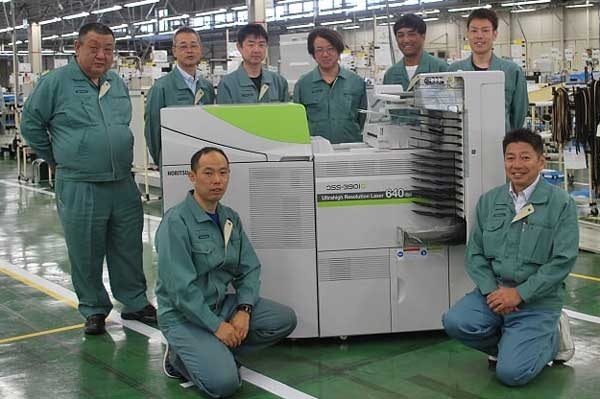Believe it or not, but there used to be thousands of outlets around Australia where you could buy film and have it processed, with about a thousand offering in-store, same day processing of that film and the rest using a wholesale processor.
With this level of competition, ‘D&P’ – develop and print – was as low as $5.95 for a 24-exposure roll (if you were prepared to wait a few days for the order to come back from the wholesale lab), and a roll of film cost around $5 from Woolies.
Digital cameras destroyed this business and its probably fair to say the photo retailing industry has never really recovered. When Hardly Normal et al moved into the camera market and trashed it, it was a one-two punch that sent specialist photo retailing reeling.
But a new group of customers have re-discovered the joys of analog picture-taking, and now this niche market is served by a few specialist businesses in each capital city. Some are ‘old school’ photo specialists, such as Alan and Catherine Logue from Hutts Street Photos in Adelaide, while a new group of film afficionados such as Hillvale and Film Never Die have built solid businesses based on an enthusiasm for silver halide photography.

‘Business is going gangbusters,’ Alan told Inside Imaging. ‘We are processing 100 rolls a day, every day.’ He recently purchased a new film processor to cope with the demand.
He said there are a couple of ‘kinda sorta’ competitors in Adelaide but ‘they don’t have the visibility we have in doing film’ and are hamstrung by long turnaround times – up to three weeks to have a roll of film processed. It’s not economical to fire up a film processor for a few rolls, so even retailers who offer in-store processing will be inclined to wait until they have a critical mass of orders before doing so.
As well as direct orders across the counter, Hutt St has a handful of stores sending work in from interstate. Most orders are sent back digitally, with those dealers either providing the scans or making prints from the digital files sent from Adelaide. There’s also a ‘fair bit of mail order’ which increased with the closure of Michaels film processing services at the end of 2020.
The majority of customers – 80 to 90 percent – don’t want their negatives back. Hutt St holds them for a week and then bins the negs. (Which to those of us over a certain age is disturbing!)
Hutt St doesn’t only process and print film. It also has a thriving business in other niche services such as scanning old prints by the hundreds, slide scanning, video to digital transfer, and digitising old home movie film. In fact the scanning side of the business so busy that they start before the doors open and finish well after closing hours, running a 12-hour shift each day.
The ‘elephant in the room’ for the future of film photography and printing to silver is guaranteed, ongoing, affordable supply first of film stock, then of the film processing chemistry and, for those who want it, the photochemistry and paper for analog photo prints. Ageing photo processing equipment and a lack of spare parts looms further down the track as the ultimate party-pooper.
As Inside Imaging has reported, the new owner of the Kodak paper and photo chemicals business, Sino Promise, has proven to be an unreliable supplier (to put it kindly) and Fujifilm simply doesn’t see analog photography as part of its future.
Prices from both Fujifilm and Kodak for film, photochemistry and silver halide paper are rising by hefty increments each year and film products in each company’s range are being withdrawn.
It’s getting to the stage in Australia that customers for Kodak paper and chemistry are being told they need to place huge orders well in advance of when the product will be required.
Hutt Street recently purchased eight months supply of paper and chemistry, and has been assured that most of the problems with supply from Sino Promise should be resolved by about now. We understand from US contacts that Fujifilm will be unable to, or uninterested in, filling the breach if Sino Promises’s problems continue. But even if by some chance normal transmission is indeed restored, will the relentless price rises make analog photography simply too expensive to indulge in?
Alan Logue thinks not, and he is backed up in this opinion by another of the big players in film processing, Phil Gresham (FotoFast, Brisbane). ‘It’s crazy, but the kids are paying for it,’ he said. ‘There’s been no resistance to price so far,’ he told Inside Imaging.
There is still some margin to play with. Alan said the raw material costs (paper & chem) to make silver prints for a 24-exposure roll was around $6.
Alan Logue acknowledged that both transport and material costs were rising, and that Hutt St would increase its prices ‘a bit’ to claw back some of these costs, but that this part of the market didn’t seem as price sensitive as others.
Both Alan and Phil Gresham, who we spoke to a while back, are more than happy with the way business is going. The apparent ‘price inelasticity’ for analog photography see them not overly concerned with the price rises which seem inevitable given the shrinking economies of scale of silver halide film and printing.
And if things get really expensive, a bit of lateral thinking might work. Alan told us that he has been having a lot of success lately with printing silver halide photos at Instax size and even 1 1/2 x 1 1/2-inch, riffing off the immense popularity of tiny square instant prints among younger people.





Be First to Comment